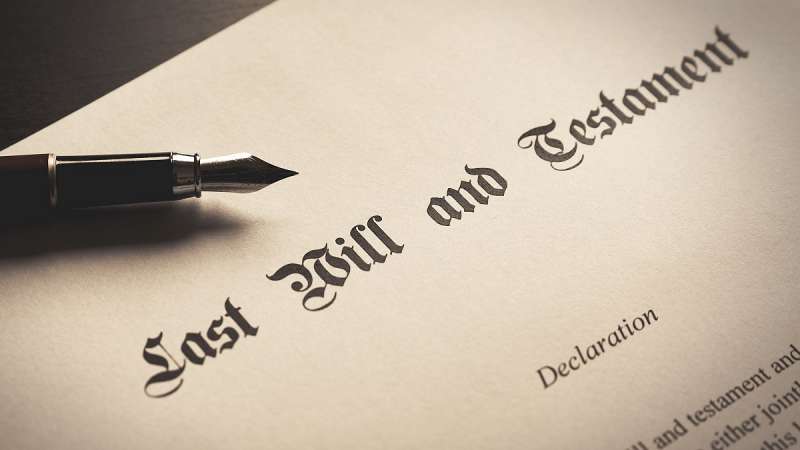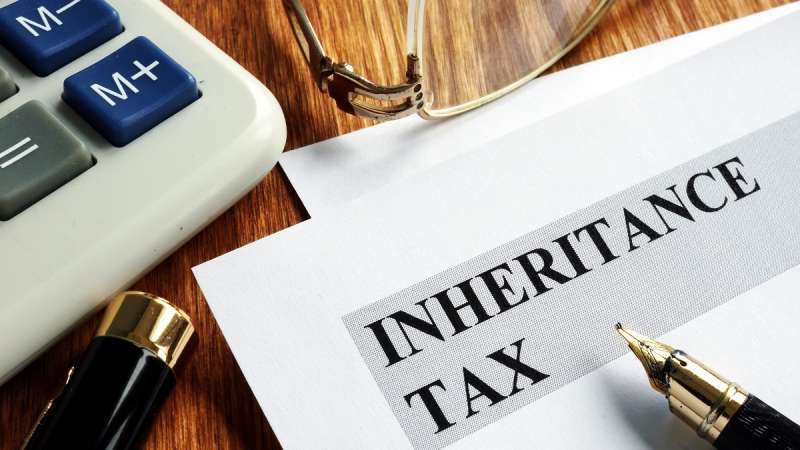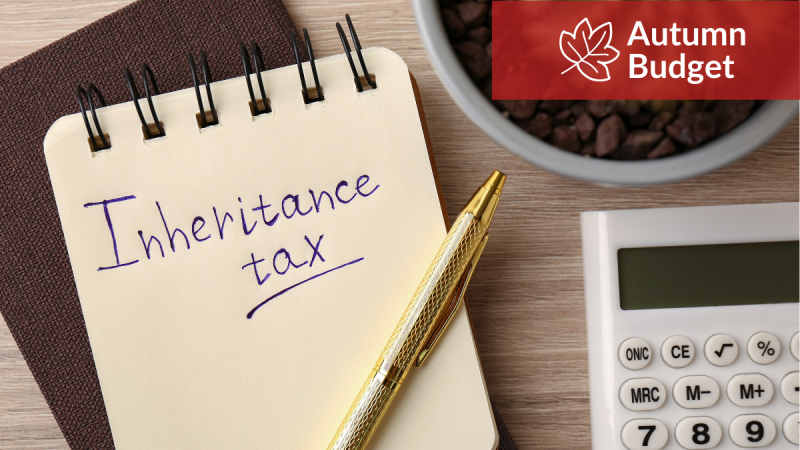Why is Making a Will Important?
A Will is the most important document you will ever make as it disposes of all the wealth you have accumulated during your lifetime and allows you to provide for loved ones when you die. Making a Will gives you the ability to make decisions about how assets should be dealt with upon your death, who should benefit from your estate and allows you to build in protections for family members if required.
The best place to start is to gather details of your assets and liabilities as well as your family tree before considering who you would like to provide for.
We can help guide you through this with our Will Questionnaire which sets out the basics of what you will need to make a Will.
It is very important to make a Will as if you do not have one, your estate will be divided up according to intestacy rules, which are often inadequate for the circumstances and result in assets not being distributed as you would wish.
Our Will Writing Service
At Myerson, our Wills, Trusts, and Probate team provides expert, tailored advice to safeguard your family and financial interests. Accredited by STEP and highly ranked in The Legal 500 and Chambers High Net Worth, we specialise in bespoke estate planning, family succession, trusts and inheritance tax.
As members of Solicitors for the Elderly, we are trained to support vulnerable clients, including those in the early stages of Alzheimer’s or disabilities. With a focus on personalised service, we’re a trusted partner for individuals, families, and institutions.
Our Will Solicitors can help with:
- Ensuring Proper Asset Distribution: We work closely with clients to draft Wills that clearly reflect their wishes, interpreting the law in this area and ensuring assets are distributed to the right people, avoiding the uncertainties of intestacy rules.
- Preventing Family Disputes: Our team will take detailed instructions, and put measures in place to minimise the risk of challenges to the Will.
- Wealth protection: We regularly structure Wills to build in protection for the wealth you have acquired and pass it down to future generations tax efficiently.
- Protecting minors or vulnerable beneficiaries: We advise on different trust structures in Wills to protect and benefit children and vulnerable beneficiaries.
- Protecting Unmarried Partners: The law is different for unmarried couples, and the tax rules work differently. For clients in relationships outside of marriage or civil partnerships, we create tailored Wills to secure their partners’ financial futures.
- Reducing Tax Liabilities: We provide expert advice on estate planning strategies, helping clients reduce inheritance tax and maximise the value passed to their loved ones.
- Reflecting Life Changes: Life circumstances evolve, and we assist clients in updating their Wills to account for changes such as divorce, remarriage, or the arrival of new family members.
- Securing Guardianship for Children: We help clients nominate trusted legal guardians for children under 18, ensuring their care is in the right hands if the worst happens.
- Supporting Charitable Giving: For clients wishing to leave a legacy, we help establish trusts or include gifts to charities, aligning their Wills with their values.
- Preparing Islamic Wills: Our specialist solicitors can create Islamic Wills that comply with both Islamic principles and UK legal requirements, ensuring your religious and legal wishes are respected.
Beyond drafting Wills, we also support clients with estate administration and managing Trusts. Our deep understanding of how these processes work in practice allows us to provide comprehensive and actionable solutions.
At Myerson, we ensure that every client’s legacy is protected, and their loved ones are looked after.
Do I need to use a Wills Solicitor near me?
Our Wills Solicitors are very flexible when it comes to arranging meetings and consultations.
We need to have meetings with our clients, both to check that the person who is giving us instructions is, in fact, the person making the Will, and to check for any mental capacity issues which might affect the validity of your Will.
Our wills, trusts, and probate lawyers can offer you a meeting either:
- face to face
- via Zoom
- via Skype
- via FaceTime
Myerson's team are experienced in drafting and administering trusts and can also act as professional Executors and Trustees.
We can also witness your Will signing and store the Will on your behalf.
Inheritance Tax Planning
Our inheritance tax planning solicitors will consider your whole situation, family as well as financial, taking into account:
- Capital gains tax
- Income tax
- Inheritance tax
Our IHT lawyers never lose sight of your needs, making sure that you yourself have enough to live on and we will give you clear and sensible advice about tax planning opportunities.
For tax planning on death, we can advise how to make the most of your exemptions, including
- Agricultural Property Relief
- Business Property Relief
- The Inheritance Tax threshold, for unmarried couples
- The Residence Nil Rate Band, especially where the estate is near £2 million or you intend to leave part of it to beneficiaries who are not your spouse or direct descendants
- The Transferable Inheritance Tax threshold, where one or both party(ies) to the marriage has been widowed previously
Our trusts and inheritance tax planning team can also advise on the use of trusts both to reduce Inheritance Tax down the generations and to make sure your assets stay within the family.
Testimonials
Our Approach & Our Experience with Wills
We specialise in bespoke estate planning advice and provide a personalised service rather than drafting your Will on an instruction and execution basis.
Our Wills, Trusts, and Probate solicitors are trained in dealing with vulnerable people or those who have early stages of Alzheimer’s. We are also members of Solicitors For The Elderly.
Our team are highly ranked in The Legal 500 for personal tax, trusts and probate and in Chambers under the high-net-worth category. Therefore, you can be reassured you will receive a high-quality and truly bespoke service.
At Myerson, our team of Solicitors have acquired the prestigious STEP (Society of Trust and Estate Practitioners) qualification.
STEP is an international professional association for practitioners who specialise in advice on family succession and inheritance, trusts and complicated estates. The organisation promotes education and high professional standards amongst members who are recognised by other professional advisers as well as the public.
Why Choose Myerson's Wills, Trusts, and Probate Team?
- Recognised Expertise: Myerson’s Private Wealth sector proudly holds a Band 2 ranking in the Chambers and Partners High Net Worth Guide, alongside being consistently recognised as a Top Tier law firm by The Legal 500 for the past seven years. As one of the Top 200 UK law firms, Myerson provides exceptional Wills, Trusts, and Probate legal expertise.
- Qualified Professionals: Our team holds additional qualifications in trust administration and tax regimes for trusts, along with the prestigious STEP (Society of Trust and Estate Practitioners) qualification. We have extensive experience setting up and managing live trusts, ensuring we understand the practicalities of trust operation and drafting.
- Comprehensive Support: We provide tailored advice that respects each client's unique circumstances and understands the emotional weight of estate matters. Our solicitors handle sensitive situations with care, offering support throughout the process.
- Holistic Approach: Our holistic strategy allows us to identify tax-saving opportunities and mitigate unexpected liabilities. We ensure clients comprehend the purpose and functioning of trusts, providing city-quality advice at regional prices.
- Partner-Led Service: Our partner-led approach guarantees the best legal advice and commercially minded support. We collaborate with family and property law teams, delivering a comprehensive service that addresses all aspects of estate management.
- Specialist Expertise: Our highly ranked team in The Legal 500 and Chambers for personal tax, trusts, and probate works closely with our contested wills solicitors to provide expert advice tailored to your needs.
- Recognised Leaders: Bik-ki Wong, Head of our Private Client team, has been recognised as one of the top influential private wealth lawyers in Manchester (2023) by Business Today and as one of the best probate and wills lawyers for high-net-worth individuals in the UK (2023) by Spear's.
- Extensive Network: Through our UK200 Group membership, we have strong connections to Independent Financial Advisers (IFAs) and tax advisers, offering comprehensive support tailored to your specific requirements.
- Catering to Diverse Needs: Our team includes fluent Cantonese speakers, ensuring effective communication and understanding in managing estates.
- Look at the Myerson Promise for further benefits of working with us here.
Wills FAQs
How do I deal with farming/agricultural assets in a Will?
Farming assets can potentially qualify for Agricultural Property Relief (APR) at 100% for Inheritance Tax purposes. Farming assets usually make up the majority of an individual’s estate so using up the relief can save the family a substantial amount of Inheritance Tax. Leaving assets that qualify for APR to a surviving spouse is not always desirable. As time passes, it may become more difficult for the surviving spouse to actually farm which could lead to the assets no longer qualifying for APR and some or all of the exemption is wasted.
To capture APR, it would be advisable to leave the agricultural assets to chargeable beneficiaries or into a trust if you need to make provision for multiple individuals. More importantly, the most common issue with farming assets is trying to achieve equality between family members. If the farm is the main asset and there is one child farming but the other children are not involved, it can be difficult to ensure the child who farms keeps their livelihood whilst the other children can inherit some of their parent's estate without having to sell and divide up the proceeds. As part of the planning, it is possible to put into place a more suitable structure for the farming business to separate the control and management of the farm with the value to allow all children to inherit.
What is the effect of divorce on my Will?
What is the effect of Pre-Nuptial Agreement or Post-Nuptial Agreement on my Will?
Should I update my Will when doing a Pre-Nuptial Agreement or Post-Nuptial Agreement?
Unlike entering into a marriage or a civil partnership, entering into a Pre-Nuptial Agreement or a Post Nuptial Agreement will not revoke or cancel an existing Will.
It is recommended that parties should execute separate wills that are consistent with the provisions of the Agreement at the same time as entering into the Agreement to ensure that the provisions of your Will are at least as generous as the provisions in your Pre or Post Nuptial Agreement.
If not, then there is a risk that your spouse or civil partner will be able to bring a claim against your Estate after your death.
Your Pre-Nuptial Agreement can include a provision that you both agree to make Wills to reflect the terms of the Pre-Nuptial Agreement, but there is no binding obligation for either party to do so.
How can Wills create asset protection?
It is possible to include Trusts in Wills to protect your assets if you have remarried and have children from a previous relationship, or if you are concerned about the possibility of your surviving spouse or civil partner moving into care.
You can still make provision in your Will for your surviving spouse or civil partner by leaving your Estate on a life interest trust, which means they will have the right to continue living at the family home rent-free and receive income from investments, but you can also guarantee where your Estate passes to on the second death.
A life interest trust can also help protect against care fees because the trust ring-fences assets from being included in the surviving spouse or civil partner’s Estate.
If you include a life interest trust in your Will, it is important to check how you legally own any properties and investments to ensure that they will pass to the life interest trust under your Will.
Is a homemade Will valid?
A homemade Will can be valid so long as it is executed properly and satisfies the requirements in section 9 of the Wills Act 1837. Writing your own Will may seem like a cost-effective solution however, homemade Wills are usually very simple and do not provide for enough eventualities which could lead to a partial intestacy. More importantly, the more prescriptive Wills can be ambiguous and often lead to disputes between family members which could cost the estate several times the cost of making a Will to resolve. The wording of Wills is also important as certain Inheritance Tax exemptions require particular criteria to be met and something as simple as stating an age contingency of 21 on gifts to grandchildren could mean additional Inheritance Tax is payable by your estate.
Should I make a LPA when making my Will?
A Will deals with the distribution of your estate on death but an LPA allows you to appoint a person(s) to make decisions about your financial and/or health whilst you are alive if you should lose mental capacity. The two do not crossover and therefore they are just as important as the other. If you have assets in your sole name, no one else will be able to access them unless you have legal authority in the form of an LPA and this should not be left until you have lost mental capacity as you will not be able to make an LPA and someone will have to apply to the court to be appointed as your deputy. It is often more cost-effective to deal with your Will and LPA at the same time as some of the information is required for both documents.
Does a Will have to be registered?
In England and Wales, there is no requirement for a Will to be registered in order for it to be valid. However, registration does allow a greater chance of your Will being proved and for your intended beneficiaries to receive their inheritance. The national Wills register favoured by the Law Society is Certainty. Myerson is a member of Certainty and we can arrange for your Will to be registered once you have signed. The fee is currently £25 +VAT.
Where can I store my Will?
You should always keep your Will somewhere safe and advise your Executors where it is being kept. If you have made your Will with a solicitor, they will usually store your Will free of charge as part of the Will making process. Some individuals may prefer to store their own Will in a safe at home or with the bank in a deposit box. Care should be taken if you are storing your own Will as a missing Will could be construed as having been destroyed with the intention of the Will being revoked. It is possible to prove a copy of an original Will however, you will need to make an application to the probate registry with evidence to show that the Will was not cancelled.
What is a Will?
A Will is a legal document setting out your wishes as to how your estate is to be distributed on your death.
If you do not make a Will, your assets will be divided in accordance with a set of rules called ‘Intestacy’ which only considers family members. Close friends, partners and charities may not benefit at all.
How do I deal with business assets in a Will?
Some business assets will be eligible for Business Property Relief (BPR) for Inheritance Tax purposes. If the relevant criteria is met, the value of those business asset may be eligible for Inheritance Tax relief at 50% or even 100%.
Quite often, business assets are part of a family business and leaving assets that qualify for BPR to a spouse or non-chargeable beneficiary could be wasting the exemption as those assets are most often sold after death so that the cash balance will aggregate to the estate of the surviving spouse and no longer qualify for BPR.
If you are lucky enough to have a substantial estate, you may decide to gift the business assets directly to non-chargeable beneficiaries such as your children however, most would like those assets to be available to the surviving spouse if they are in need and therefore a more practical solution would be to place the assets which qualify for BPR into a trust which would allow the trustees to review the circumstances of the family of the deceased at the time and provide for them accordingly whilst using up any BPR.
Succession planning requires some investigation into the current structure of your business as succession may be subject to how the business was set up and existing documents in place such as articles of association for companies. Some consideration must be given to the running of the business as well as who will acquire the value of the business and if there are provisions in place for a buyout, whether there will be sufficient funds.
What is the effect of marriage on a Will?
When you marry, an existing Will is automatically cancelled. If you do not make a new Will after you marry, the rules of intestacy will apply which makes the assumption that at least the first part of your estate will pass to your new spouse (depending on the value and other members in your family). Quite often this is not the intended outcome as there may be children from a previous relationship that you would also like to make provision for. If you are getting married, you can put a Will in place in contemplation of marriage which will not be revoked by the marriage. Another thing to consider before you marry, especially if you have a larger estate, is a pre-nuptial agreement.
Can I avoid someone challenging my Will?
In England and Wales, the starting point is that an individual is free to leave their estate to whomever they wish. However, there are several grounds on which a Will can be challenged. The most common ones being under the Inheritance Provision for Family and Dependants Act 1975 where reasonable financial provision has not been made for a person who qualifies under the categories of persons to make a claim. In this case, you could leave a lesser sum with a no-contest clause which means they could forfeit their inheritance if they do challenge your Will. A statement setting out your reasons for excluding someone may also be helpful. Making sure that your Will is executed properly is also a good way to prevent your Will from being challenged as it is likely the person challenging will want the previous Will to take effect.
Other grounds to contest a Will include the lack of mental capacity or undue influence. If a Will is made professionally by a qualified solicitor specialising in this area of law, they are going to insist on seeing you by yourself to remove any influences and will be conducting and recording their observations about your mental capacity. If there is any doubt, they may also suggest having a medical expert assess mental capacity. With today’s technology, it may also be advisable to record the Will signing to be used as evidence in the future.
Can I exclude someone from my Will?
In England and Wales, a testator is free to leave their estate to whomever they wish as a starting point. We do not have forced heirship rules however, certain categories of excluded persons may be able to make a claim against your estate under the Inheritance Provision for Family and Dependants Act 1975 if reasonable provision has not been made for them.
If you wish to exclude someone from your Will, there are lots of ways to help prevent your Will from being challenged but this will depend on your individual circumstances.
What is a Mirror Will?
Mirror Wills are usually made by couples at the same time and the terms are virtually identical in that they “mirror” each other.
A typical example of a simple mirror Will would be a couple leaving everything to each other and then on the survivor’s death, the estate is split equally between their children. The advantage of this type of Will is that they are mostly straightforward and cost less than two bespoke Wills. However, simple mirror Wills can be changed by an individual at any time and this can be problematic if a couple has children from previous relationships and they agree to split the estate equally between both sets of children on second death but the survivor may fall out with the step-children and cut them out of the Will after the death of their parent. In these cases, mirror Wills with trusts may help.
Can an executor of a Will also be a beneficiary?
An executor can also be a beneficiary of a Will but a beneficiary should not act as a witness of the Will otherwise they will not be entitled to their inheritance under the Will (unless the Will is still valid without their signature).
A point to note is that an executor is usually also appointed as a trustee and if the Will contains a discretionary trust, there may be a conflict of interest as the executor/trustee may wish to exercise their discretion and appoint all the trust funds to themselves.
It is always prudent to consider carefully who should be appointed as executor/trustee and if possible to appoint more than one as trustees have to act unanimously.
How much will it cost?
At Myerson, we provide a bespoke service and advise you on your individual circumstances based on your priorities.
As a guide, we find that mirror Wills without trust are in the region of £1200 + VAT.
If you require more complicated Wills containing a trust or further advice regarding estate planning or Inheritance Tax mitigation, we find that our charges are from £2000 + VAT.
What is the process of making a Will?
- We will ask you to complete our Will Questionnaire.
- Then we will meet with you in person (this can also be done virtually via FaceTime, Zoom or another platform) to discuss your needs and our proposals in more detail including advice on Inheritance Tax and estate planning.
- We will open your file, record your instructions and our advice, as well as documenting issues such as mental capacity and undue influence to reduce the possibility of your Will being challenged.
- A draft Will will be sent for your approval with our advice. We ensure our Wills, so far as possible, are transparent and clear to read, but of course, we are happy to discuss any queries you may have.
- A meeting will be arranged for us to complete a final review of your Will with you and to execute them. Once signed, we can store your Will and provide you with copies. We can also register your Will with the Law Society recommended Wills Register, Certainty.
Meet Our Wills, Trusts, and Probate Lawyers
Home-grown or recruited from national, regional or City firms. Our wills, trusts, and probate lawyers are experts in their fields and respected by their peers.
Contact Our Experts
You can contact our lawyers below if you have any more questions or want more information:








